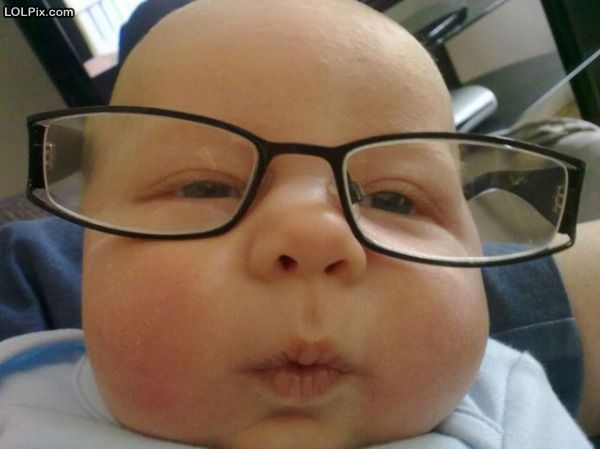Try these on your friend's baby. You'll be surprised.
Think you can take a candy from a baby by tricking him or her? Recent studies showed that trying to fool a baby might not be so easy after all! Babies are actually smarter than we think, here's 5 reasons why.
Babies actually understand what you're saying
There had been a few demonstrations of understanding before, involving words like 'mommy' and 'daddy'.
You can talk to your babies, and they're going to understand a bit of what you're saying.
foxnews.comBabies as young as 6 months can understand a wide vocabulary, and that if parents speak to them normally it could improve their language skills later on.
dailymail.co.ukBabies know when you're speaking a new language
Babies can tell the difference between two languages without hearing the spoken words, simply by watching the face of the adult who is talking.
go.comBabies growing up in a multilingual environment are neither confused nor disadvantaged by having to cope with 2 mother tongues.
A study found that babies as young as 4 months old can discern from visual cues when a different language is being spoken (based on the shape and rhythm of the speaker’s mouth and face movements).
Babies know when you're happy or sad
In another research by Brigham Young University, it was found that infants can also pick up on mood swings in Beethoven’s music.
Babies as young as 7 months old already process happy and angry voices in ways analogous to the adult brain.
A new study found that 6-month-olds can match the sounds of an angry snarl or friendly yap with photos of dogs showing the corresponding body language.
Babies know who should be punished
Babies as young as 8 months want to see wrongdoers punished, a new study finds.
Babies as young as eight months old prefer it when people who commit or condone antisocial acts are mistreated, a new study showed.
The babies were shown puppets either giving or taking toys from these “good” or “bad” puppets. The babies preferred the puppets that mistreated the bad puppets.
rd.comBabies understand what is 'fair' and 'not fair'
The researchers also found that infants do have different sharing "personalities," with some being shocked by unfairness and others by equal sharing.
Researchers noted that the babies watched the video longer when the foods were unevenly distributed.
Findings show that fairness and altruism are more rapidly acquired by babies than we thought.
